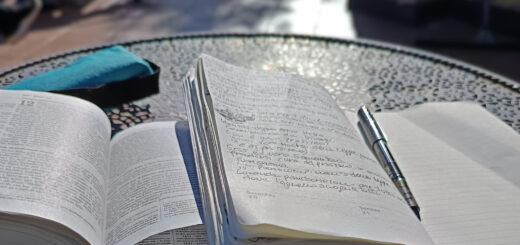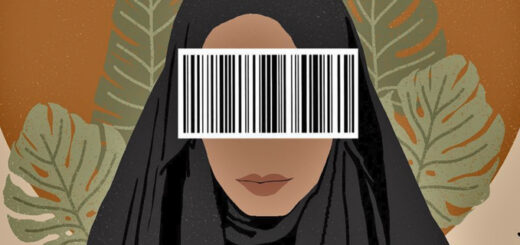Pier Paolo Pasolini's "love rallies"
.
Reflections by Luciano Ragusa
With in mind the idea of traveling Italy in search of faces and places useful for the project of Gospel according to Matthew (1964), Pasolini glimpses the possibility of building an investigation film with the interview method. On the false line of "Cinema-Verité", which in 1961 had aroused interest and discussion also in Italy (Chronique of an eté, of the French Rouch and Morin), the Friulian director, between March and November 1963, puts himself at work.
The document consists in interviewing Italians on sex and love problems, from the most obvious (such as marriage, birth, children) to the most controversial (divorce, female alienation, homosexuality, prostitution). With microphone and recorder, the author interviews Italian from north to south, peasants and workers, students and young proletarians, trying, from an anthropological and sociological point of view, to propose a sufficiently significant and descriptive sample.
What interests the director is to try to grasp the transformations of the mentality of the Italians, especially as regards sexuality, morality, taboos. The investigation, divided into chapters, makes use of the intervention of exceptional characters, including Musatti and Moravia, Ungaretti and Cederna, as well as Oriana Fallaci.
In the beautiful book Philosophers' puppets. Pasolini from literature to cinema, the author, Marco Antonio Mazzocchi, thus describes the road that leads the filmmaker to Love rallies:
We are in the mid -sixties, and Pasolini has already started his activity as a journalist in contact with the public on "new streets", invited by Maria Antonietta Macciocchi, and from this moment an explicitly becomes an anthropologist attentive to the costumes of his country, as then It will become it of African and eastern countries (always in relation to Europe).
In articles as in the movies there is a common figure. Pasolini starts from very simple and concrete elements, has no pre -established theories but is conducted by the reality of the facts, following a principle of empiricism subsequently defined as "heretic". In other words, seeking the truth starting from reality.
(But Mazzocchi, The philosopher puppets. Pasolini from literature to cinema, Bruno Mondadori, Milan, 2007, p. 145).
But the docufilm has another value: precisely because we are in 1963 he has the merit of being the first document that explicitly speaks of ethically sensitive issues in Republican Italy: in those years Bernabei is the general manager of Rai, where, within the programs, You cannot pronounce the Carola punch because it evocative of a dirty word. The Baslini-Forrua divorce law will begin its legislative process only in 1965 and last five years.
Two opinions compared
Not everyone recognized in the Love rallies A completely successful work: for some it is the peak of the entire Pasolinian poetics, where all his intentions reveal themselves without ambiguity; For others, however, the document is mallrified, as well as, scarcely representative. It is therefore useful to report two steps that underline, for better or for worse, the critical issues of the project, in order to better understand their flow:
"Love rallies" is an unscrupulous portrait of Italy that changes, a model for many television investigations that followed. Still, what is striking is the presence on Pasolini's screen himself: the film is his dispelled self -portrait.
His pedagogical stubbornness, his mildness that was violence and his violence that was mildness, that insist in questions, that modulate them with a brush, to a mother, to a recruit, to a Sicilian boy, two frequency of whales; So the unusual stamp of his voice, shielded behind a rationalist rigor, and outside of every forecast, to his natural person, to the way in which the glasses or the jacket was made from the shoulders. [...]
"Love rallies" also applies as a photographic capture of Italian faces and bodies, as a visual experimentation of a plastic matter, including pictorial, which would have participated, not subordinated, in the reinvention of the Christological legend. The southern Italy, in the seal of an aesthetic destiny, became the landscape of Judea and Galilee; The Lucanian peasants, scattered for the Sassi di Matera, were the crowd who applauded in Jerusalem the arrival of the Nazarene Jesus.
(E. Sicilian, Life of Pasolini, Mondadori, "Oscar Saggi", Milan, 2005, p. 309).
But even if interesting ideas emerge for a less approximate processing, the sociological and political thickness of the overall result is strongly spoiled by the limits of the method, which offers no guarantee on the reliability of the "champions" collected. Only superficially and in the very first approximation, a barracks or a whale, a Tuscan beach or a square in Naples can give the illusion of the immediacy of authenticity.
In reality, what is gathered is not a cross -section of society but a random aggregation, disordered and nient 'sorceanous hatched which, moreover, the presence of the room and the microphone and the interviewer's questions put against and on the defensive, inducing to assume respectable and, in a certain sense, obliged behaviors.
The director-investigator contribution, which is limited here to the provocation and comment, should obviously be much more committed to distinguishing, analyzing, tracing the occasionality of the reliefs to more probing criteria and ways of reading and interpretation.
(A. Ferrero, The cinema of Pier Paolo Pasolini, Marsilio, Venice, 1994, pp. 51-52).
An isolated case
But which Italy emerges from Pasolini's documentary? And what continuity, if there are, can be identified with the films that precede, and happen, i Love rallies? The director identifies a series of medium "monsters", like a young man in a Milanese whale, some travelers by train, a family father on a beach, who, in the face of problematic and lacerating issues, are the crisis of the couple and the family institution, of homosexuality and its social statute, unleash, with quiet impression and arrogant imbecility, a false knowledge in which the commonplace triumph, the sentimental blackmail and racistic prejudice.
Some of the clearer human groups are the countermers: children, people, Sicilian peasants, which evoke an authentic and profound rural society, which screams nostalgia, all too aware that their world is destined to disappear, and that it will no longer be able to return.
Even in the interviews, therefore, the antithesis so congenial to the author persist, which they make Love rallies Not a bogeyman of Pasolinian cinematography, but a possible artistic manifestation in full consistency with what precedes and with what the film happens.
A privileged spectator
The French philosopher Michel Foucault sees the film in 1977, when he comes out in France, and gives a very interesting personal reading. For the French philosopher, the Friulian filmmaker has resumed the technique used by the Greek philosophers of the fifth century BC: it is persuaded that Love rallies It is a kind of "symposium" conducted by a modern Socrates on the Italian roads.
It is an "on the road" investigation, where a solar, picaresque country is shown, in which, the voice for a public confidence on sex is missing, which at the end of the seventies, on the other hand, is widespread on all means of communication. A new regime is about to be born in Italy, that of tolerance, and, according to the philosopher, our young compatriots have a confused premonition. Hence the title of Foucault's article, The Matins of the La Tolerance*, term Pasolini uses in Corsari writings About the new condition of homosexuals in capitalist society.
The basic problem is that in 77 ', the French philosopher has already seen Salò and the 120 days of Sodoma, so, in his eyes, a reading of Pasolini's work is simple as a single epic whose subject is youth. A youth that, the society of adults, from the Middle Ages onwards, has never managed to integrate: except to have it killed, every now and then in war.
* The article, The Matins of La Tolerance, came out on "Le Monde" on March 23, 1977. It is now in M. Foucault, Dits et ecrit (1976-1979), Gallimard, Paris, 1994, vol. III pp. 269-271.
Film Sheet
Subject and script: Pier Paolo Pasolini.
Direction: Pier Paolo Pasolini; Directed help: Vincenzo Cerami.
Photography: Mario Bernardo, Tonino Delli Colli.
Editing: Nino Baragli.
Interventions and interviews: PP Pasolini, Alberto Moravia, Cesare Musatti, Giuseppe Ungaretti, Camilla Cederna, Adele Cambria, Oriana Fallaci, Antonella Luldi.
Comments: Lello Bersani, pp Pasolini.
Production: Alfredo Bini for Arco Film.
Distribution: Titanus (now National Cineteca and new communication-ARC).
Shooting: March-November 1963, with exterior in Naples, Palermo, Cefalù, Rome, Fiumicino, Milan, Florence, Viareggio, Bologna, Emilian countryside, Venice Lido, Catanzaro, Crotone.
Bibliography:
- A. Ferrero, The cinema of Pier Paolo Pasolini, Marsilio, Venice, 1994.
- But Mazzocchi, The philosopher puppets. Pasolini from literature to cinema, Bruno Mondadori, Milan, 2007.
- E. Sicilian, Life of Pasolini, Mondadori, "Oscar Saggi", Milan, 2005.






